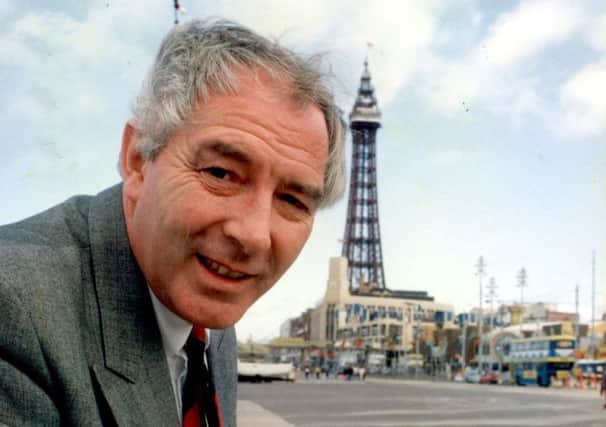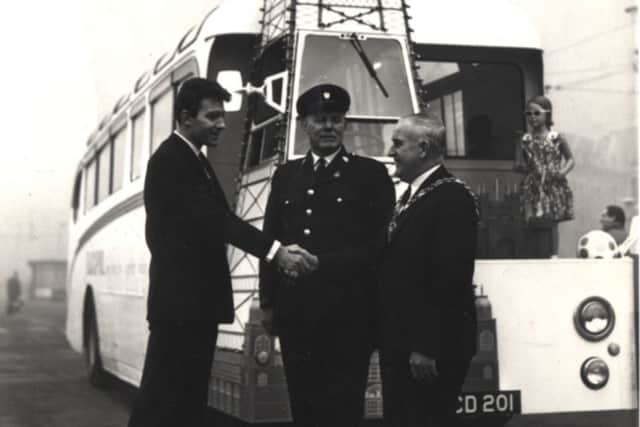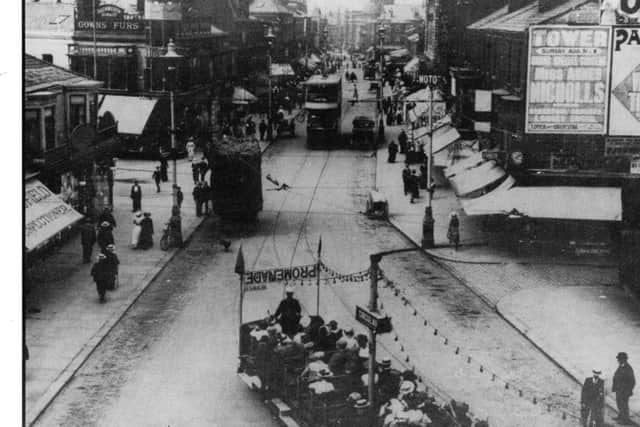Barry Band: How Blackpool kicked off commercial tourism


Two pence in the pound on the resort’s rateable value was what did it.
In research for Memory Lane, former Director of Tourism, Barry Morris, reminds us that this is what enabled the town to advertise itself in a big way in the 1880s.
Advertisement
Hide AdAdvertisement
Hide AdBut it wouldn’t have been possible without a clever move by Blackpool’s new Town Clerk, Mr Henry P May, in his drafting of a Parliamentary Bill in 1879.


The bill sought permission for the town to undertake improvements, including the laying out of Whitegate Drive and other roads, and local public health regulations.
The Town Clerk also asked permission for Blackpool Corporation “from time to time” to pay for a public band or music and also to maintain advertisements for the town on railway stations.
There would be a cap on this proposed spending of two pence in the pound on the rateable value of the borough in any one year.
Advertisement
Hide AdAdvertisement
Hide AdBarry Morris notes that with the passing of the bill in 1879, Blackpool was about to leap into an exciting future.


“No other resort in the country had come up with anything as dynamic and it would take more than 20 years for them to emulate our big progressive step,” says Barry.
He reckons Blackpool’s move was the beginning of commercial tourism promotion in Britain.
It was achieved initially by the large scale placing of posters on railway stations in the north and gradually across Britain.
Advertisement
Hide AdAdvertisement
Hide AdBarry says: “Previously there had been no budget for advertising the resort’s attractions.


“In those days it cost a fortune to advertise on the railway. A single poster cost 15 shillings for a season but a bundle of prime sites could be bought for £1,000 on a five-year contract.”
So how much was raised from two pence in the pound on the resort’s rateable value?
In 1886, Blackpool’s combined rateable value was only £158,000, according to a Blackpool Times Yearbook.
Advertisement
Hide AdAdvertisement
Hide AdThere were 240 pence in the £ and I reckon a tuppenny rate would produce £1,316.


As Blackpool grew in the 80s and 90s the rateable value rocketed and to administer this spending a new breed of local government officer had to be invented.
It was a rather ad hoc appointment, for the first person to get the job was a former Manchester railway worker who had come to Blackpool in 1879 for the sake of his wife’s health.
Charles Noden was a council carriage inspector, rates collector and then Mayoral Attendant before becoming Advertising Manager in 1900.
Advertisement
Hide AdAdvertisement
Hide AdBarry Morris notes that Charlie Noden, as most people knew him, became a local legend, the first to be called ‘Mr Blackpool.’
His most famous publicity stroke was to secure an advertisement for Blackpool on the gable end of the historic farmhouse on the battlefield of Waterloo, in Belgium.
He retired in 1909, but was retained by the Corporation as a consultant to the advertising department.
n Next week Barry Morris will talk about the other legendary names who kept Blackpool in the public eye in the 20th century.